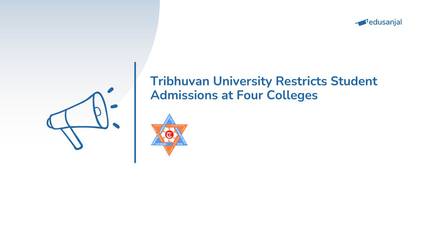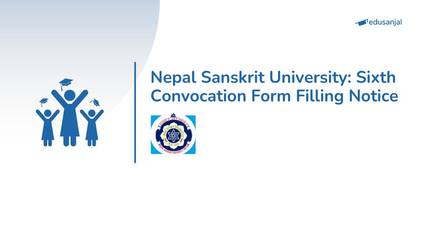Kathmandu, 20 Ashar. In response to the growing number of universities in Nepal and the challenges faced by these institutions, a panel discussion was recently held in Kathmandu. The University Grants Commission (UGC) organized the event to address the issue of universities lacking strength. The program aimed to find solutions to problems such as low student enrollment and financial weaknesses faced by newly established universities.
During the discussion, the Minister of Education, Science, and Technology, Ashok Rai, expressed his commitment to effectively manage and operate universities after their establishment. He emphasized the importance of strong leadership in developing institutions. Professor Dr. Devraj Adhikari, the Chairman of the UGC, stated that the dialogue was initiated to address the observed issues in university functioning.
Recently, five universities, namely Gandaki University, Manmohan Technical University, Lumbini Technical University, Madhesh Agricultural University, and Madhesh University. and two health science institutes, namely Madhesh Health Science Institute and Madan Bhandari Health Science Institute, have been established.
Gandaki University, for instance, has only 187 students enrolled in its five programs. During the program, officials from regional universities requested financial support from the UGC.
Former Vice-Chancellor of Kathmandu University, Prof. Dr. Suresh Raj Sharma, emphasized the need to formulate policies before establishing universities in Nepal. He stressed that the success of a university depends on the quality of its programs, stating, "To make a university successful, it is crucial to have good programs."
Prof. Dr. Tirtha Khaniya, former Vice-Chancellor of Tribhuvan University, highlighted that universities in Nepal are not only established to meet the need for higher education but also for political reasons. He stated, "None of the universities in Nepal were established because my study requires them. All of them were established for political reasons, including Tribhuvan University."
The panel discussion also focused on investigating the reasons why students choose to pursue higher studies abroad and the attraction of students to colleges affiliated with foreign universities. Prof. Dr. Dharmakant Baskota, Vice-Chancellor of Tribhuvan University, mentioned that the university will only open after ensuring financial sustainability.
"We will ensure that we bring students back to study here and make efforts to prevent further student exodus," he added.
Prof. Dr. Prem Narayan Aryal, Vice-Chancellor of Pokhara University, highlighted that ensuring security is a significant concern when opening a university. He emphasized the importance of carefully considering the demarcations of regional universities.
Ammaraj Joshi, Vice-Chancellor of Far-Western University, stressed the importance of financial and public support and conducting market analysis when opening a regional university. He also noted that the infrastructure for Far-Western University has not been completed even after 14 years of its establishment, emphasizing the need to plan for necessary human resources and avoid premature closures.
Prof. Dr. Yadav Prakash Lamichhane, Vice-Chancellor of Nepal Sanskrit University, discussed the challenges faced due to a lack of subject experts in running the university. He also highlighted the challenges faced in running the university's Bachelor of Ayurvedic Medicine and Surgery (BAMS) program for the past 12 years due to a shortage of qualified faculty members for the Master's program. He expressed concerns about the operation of Yogmaya Ayurved University in Dingla, Bhojpur, stating that similar challenges could be expected. The difficulty lies in finding qualified faculty members to ensure the smooth functioning of the university and its programs. This situation emphasizes the need to address faculty shortages and devise strategies to overcome such challenges when establishing Yogmaya Ayurved University in Dingla, Bhojpur.
Professor Dr. Punya Prasad Regmi, Vice-Chancellor of Agriculture and Forestry University, stressed the importance of advancing higher education before opening new universities. While attracting students to newly established institutions may pose initial difficulties, he voiced his concerns about the long-term sustainability of these universities. Furthermore, he highlighted that Agriculture and Forestry University currently has one out of its ten constituent campuses without any enrolled students, along with eight affiliated private campuses needing more student enrollment.
Professor Dr. Bholanath Thapa, Vice-Chancellor of Kathmandu University, emphasized the need for distinctiveness in new university establishments. He underlined that universities should be opened in a way that does not hinder students' opportunities to pursue higher education abroad, promoting a balance between domestic and international educational pursuits.
Professor Dr. Shilu Manandhar Bajracharya, Vice-Chancellor of Nepal Open University, expressed her view that there may be more appropriate approaches than opening new universities alongside government transformation. She stressed the necessity of examining the reasons behind the declining number of students and formulating strategies to address this trend effectively.
Professor Dr. Yadav Koiralaa, Vice-Chancellor of Purbanchal University, emphasized the importance of formulating comprehensive policies for operating universities during their establishment phase. This consideration is vital to ensure the effective management and growth of the universities while addressing potential challenges.
The panel discussion provided valuable insights from experienced Vice-Chancellors, highlighting the significance of strategic planning, distinctiveness, student enrollment, sustainability, and policy formulation in establishing and successfully operating universities in Nepal.
The panel discussion highlighted the need to address the challenges faced by universities in Nepal and formulate appropriate policies to ensure their effective operation and long-term sustainability. These insights will contribute to shaping future decisions and initiatives in the country's higher education landscape.













